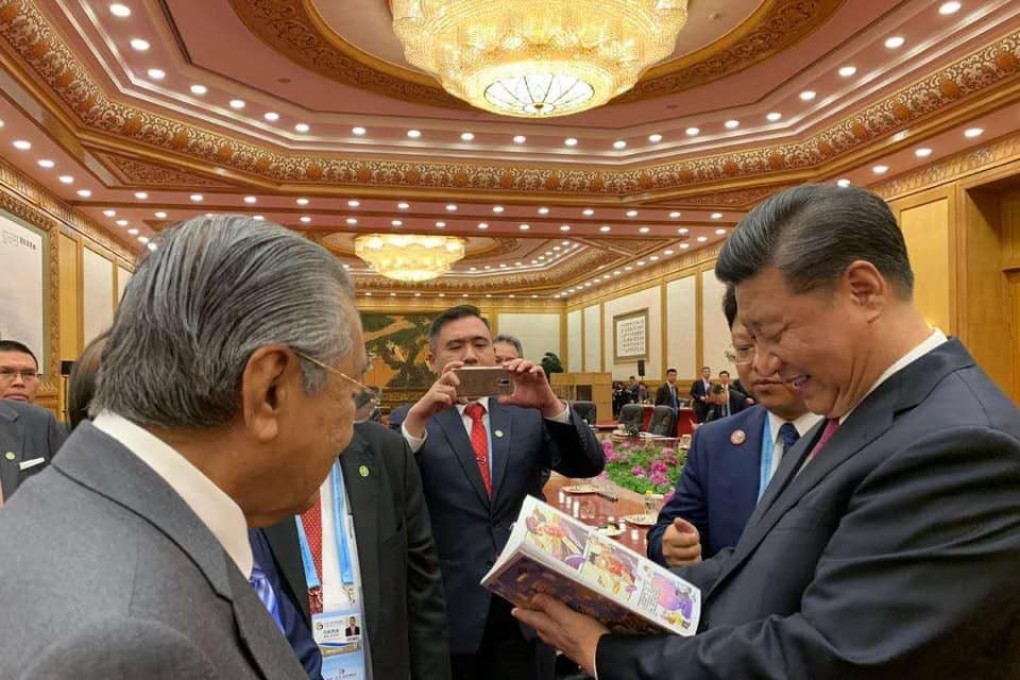Advertisement
Malaysia bans controversial belt and road comic for cultural insensitivity, promoting communism
- The comic, written by a controversial local activist, also suggested Malays who supported China’s Muslim Uygurs were radicals
- A picture of President Xi Jinping reading the publication emerged on Thursday, sparking further uproar
Reading Time:3 minutes
Why you can trust SCMP

A comic book championing China’s Belt and Road Initiative and written by a controversial Malaysian activist was on Wednesday banned by the Home Ministry for cultural insensitivity and promoting communism after a week of widespread criticism.
“This publication tries to, among other things, promote the ideology of communism and socialism and has spread incorrect, confusing facts about communists while trying to raise support and sympathy for the communist struggle,” the ministry said in a statement.
It added that the publication could “raise doubts” about the country’s history among younger Malaysians, and failed to take into account the multiracial country’s cultural sensitivities.
The ban comes after Prime Minister Mahathir Mohamad on Monday criticised the comic, saying any attempt to influence the minds of the country’s youth was “not good” and that it was not Malaysia’s job to “promote Chinese ideas and ideologies”, despite its support for the belt and road plan.
Advertisement
Titled Belt and Road Initiative for Win-Winism and written by Hew Kuan Yau, a former member of the Democratic Action Party (DAP) – a key component of the ruling Pakatan Harapan coalition – the comic was distributed to schools last week. It quickly went viral online, with many angered by sections that suggested Malays who supported China’s Muslim Uygurs were radicals.
The comic sparked further furore on Thursday, when it emerged that Hew on October 19 posted a picture of Chinese President Xi Jinping reading it while Malaysian Prime Minister Mahathir Mohamad looked on.
Advertisement
Hew has claimed Mahathir presented Xi with the book in April, but the Prime Minister’s Office denies this and said it was handed to the Chinese leader in a way that “did not observe protocol”, according to local media.
Advertisement
Select Voice
Select Speed
1.00x